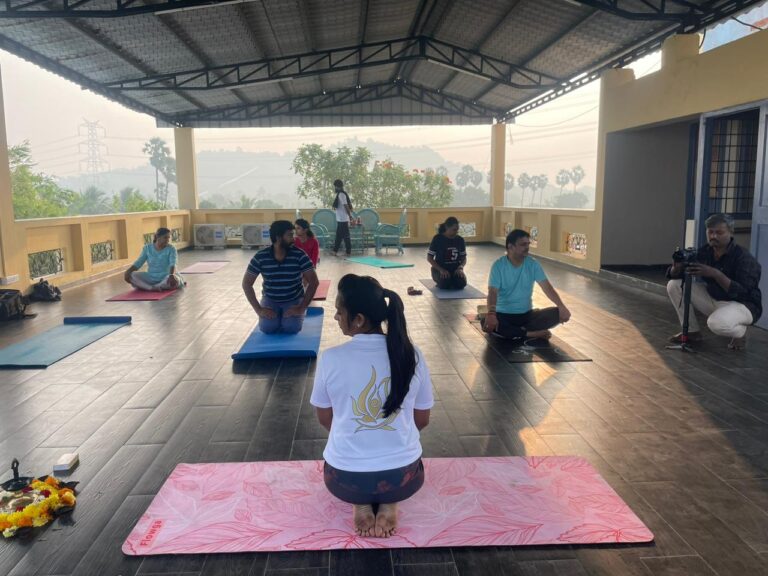Introduction
Irritable Bowel Syndrome (IBS) is a common gastrointestinal disorder affecting millions worldwide. The symptoms, which include abdominal pain, bloating, and irregular bowel movements, can be disruptive and distressing. While there’s no one-size-fits-all solution for IBS, many individuals have found relief through yoga. In this article, we’ll explore the potential benefits of yoga for IBS, how it can soothe digestive discomfort, and empower individuals to take control of their gut health.
1. Understanding Irritable Bowel Syndrome (IBS)
IBS is a chronic digestive disorder characterized by abdominal discomfort, altered bowel habits, and bloating. Stress and dietary factors often exacerbate these symptoms. Yoga provides a holistic approach to managing these triggers by promoting relaxation, reducing stress, and enhancing overall well-being.
2. Stress Reduction and Gut Health
High stress levels can exacerbate IBS symptoms by affecting the gut-brain connection. Yoga’s relaxation techniques, including deep breathing, meditation, and gentle postures, help lower stress hormones and promote a sense of calm. This can alleviate the severity and frequency of IBS symptoms, offering much-needed relief.
3. Promoting Digestive Health
Certain yoga poses, such as the Wind-Relieving Pose and Cat-Cow Pose, can relieve digestive discomfort. These postures help massage and stimulate abdominal organs, facilitating better digestion and reducing bloating and pain associated with IBS.
4. Mindful Eating Habits
Yoga encourages mindfulness, not only during practice but also in daily life. Mindful eating fosters awareness of the body’s signals, helping individuals identify food triggers that worsen IBS symptoms. This practice empowers them to make gut-friendly dietary choices.
5. Encouraging Healthy Lifestyle Changes
Yoga often catalyzes a healthier lifestyle. It inspires individuals to change their diet, exercise routines, and daily habits. These changes can significantly support the management of IBS and enhance overall digestive health.
6. Alleviating Abdominal Tension
Yoga’s gentle stretching and postures are an effective way to relieve tension in the abdominal muscles, which can contribute to IBS symptoms. By promoting relaxation, yoga helps minimize discomfort and alleviate IBS symptoms.
7. Breath Control and IBS Relief
Yogic breathing techniques, such as diaphragmatic breathing, can improve oxygen flow to the digestive system, reducing tension and promoting better digestive health. These techniques prove particularly helpful in alleviating the discomfort associated with IBS.
8. Enhanced Blood Flow to the Digestive Organs
Certain yoga poses encourage increased blood flow to the digestive organs, improving their function and reducing the risk of digestive issues. Poses like the Seated Forward Bend and the Half Lord of the Fishes Pose stimulate the abdominal area, enhancing overall digestive health.
9. Strengthening the Mind-Gut Connection
Yoga promotes the connection between the mind and the body, enhancing self-awareness and self-care. This connection empowers individuals to manage their symptoms better, identify potential triggers, and make informed choices for their digestive well-being.
10. A Comprehensive Approach to Wellness
Yoga offers a comprehensive approach to managing IBS and improving digestive health. By reducing stress, promoting relaxation, and encouraging mindful lifestyle choices, it becomes a valuable tool for individuals seeking to alleviate IBS discomfort. While it may not be a cure-all, incorporating yoga into daily routines can enhance overall well-being, soothe the gut, and improve the quality of life for those living with IBS. It’s a practice that supports physical and mental health, fostering balance and harmony within the body.
Conclusion
Irritable Bowel Syndrome can be challenging, but yoga offers a path to digestive harmony. Its gentle yet powerful techniques can reduce stress, promote relaxation, and encourage healthy lifestyle choices. Through yoga, individuals can regain control over their gut health and enjoy a better quality of life, free from the distress of IBS symptoms. So, whether you’re new to yoga or a seasoned practitioner, consider integrating this ancient practice into your life to nurture and heal your digestive system. Your gut will thank you.



